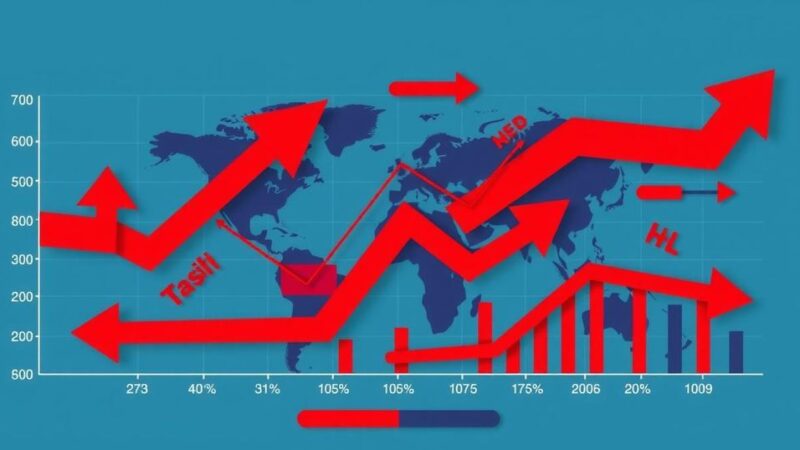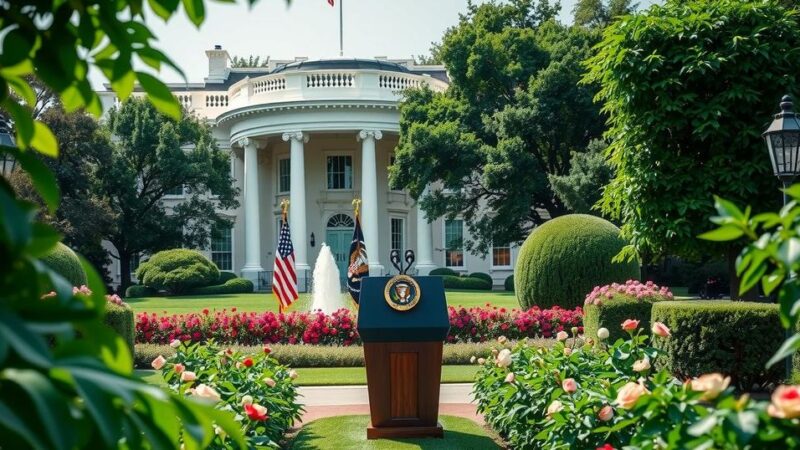Crude oil prices fell as President Trump announced plans to request lower prices from Saudi Arabia and OPEC, linking high prices to the Ukraine conflict. Following his remarks, U.S. crude dropped by 1.13% to $74.59 per barrel, while Brent crude fell by 0.92% to $78.27 per barrel. OPEC+ continues to restrict production to maintain price stability amidst rising global tensions.
Crude oil prices declined on Thursday after President Donald Trump indicated his intention to request that Saudi Arabia and OPEC lower oil prices. In his address at the World Economic Forum, Trump contended that the higher oil prices instigated by these entities contribute to the ongoing conflict in Ukraine, positing that lower prices could lead to an immediate resolution of the war.
Trump stated, “I’m also going to ask Saudi Arabia and OPEC to bring down the cost of oil.” He further elaborated, suggesting that these groups are partially accountable for the situation, claiming, “Millions of lives are being lost.”
Following Trump’s remarks, U.S. crude oil price fell by $0.85, equating to a 1.13% decrease, settling at $74.59 per barrel, while the global benchmark Brent crude dropped by $0.73 or 0.92%, landing at $78.27 per barrel. Prior to these comments, oil prices had been on an upward trend.
Currently, Saudi Arabia, Russia, and several other members of OPEC+ are restricting 2.2 million barrels per day from the global market to stabilize prices. In December, this coalition decided to maintain these production cuts through at least March 2025, influencing the global oil market dynamics significantly.
In recent months, crude oil prices have been substantially affected by various geopolitical factors, including the war in Ukraine and OPEC’s production strategies. The pricing strategies of countries like Saudi Arabia and Russia, alongside their affiliations within OPEC, play a crucial role in shaping global oil supply and demand. Amid rising oil prices, calls for reductions have become more pronounced, especially in light of the humanitarian crisis resulting from prolonged conflicts fueled by high energy costs.
In conclusion, President Donald Trump’s recent appeals to Saudi Arabia and OPEC for lower oil prices signify a broader desire to mitigate the impacts of high energy costs on global conflicts, especially in Ukraine. The immediate response from the oil markets indicates a direct correlation between political discourse and market adjustments. With OPEC+ maintaining significant production cuts, the dynamics of oil pricing remain complex and intertwined with geopolitical tensions.
Original Source: www.cnbc.com






